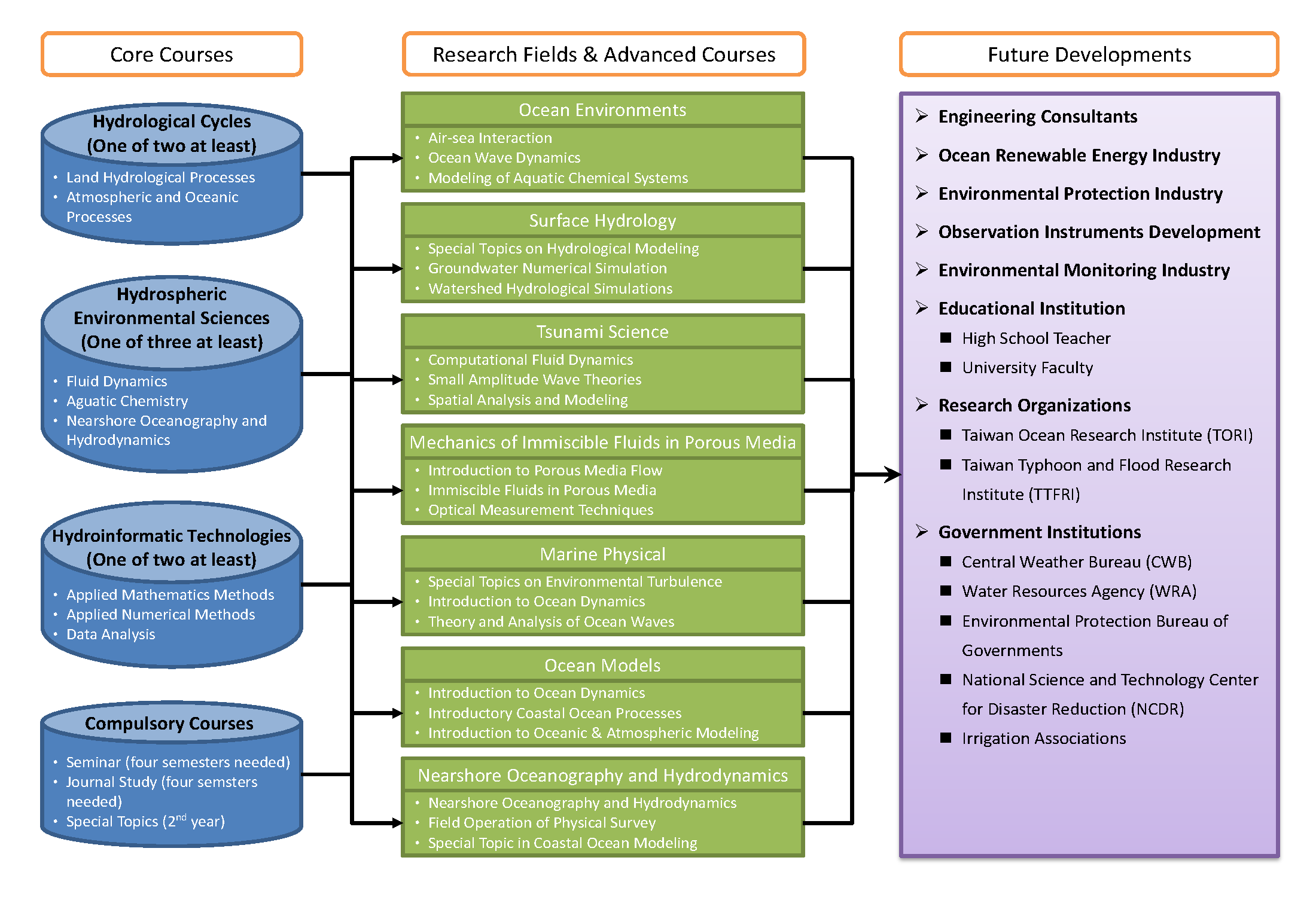Curriculum Map

This diagram illustrates how taking core courses and research-based advanced courses can lead to various future developments.
Core Courses
You need to take courses from these three groups and compulsory courses:
1. Hydrological Cycles (Choose at least one out of two): Land Hydrological Processes, Atmospheric and Oceanic Processes
2. Hydrospheric Environmental Sciences (Choose at least one out of three): Fluid Dynamics, Aquatic Chemistry, Nearshore Oceanography and Hydrodynamics
3. Hydroinformatic Technologies (Choose at least one out of two): Applied Mathematics Methods, Applied Numerical Methods, Data Analysis
Compulsory Courses
You must also take: Seminar (for 4 semesters), Journal Study (for 4 semesters), Special Topics (in 2nd year)
Research Fields & Advanced Courses
Base on research fields, these are more focused topics you can explore after your core courses. They include:
Ocean Environments: Air-sea Interaction, Ocean Wave Dynamics, Modeling of Aquatic Chemical Systems
Surface Hydrology: Special Topics on Hydrological Modeling, Groundwater Numerical Simulation, Watershed Hydrological Simulations
Tsunami Science: Computational Fluid Dynamics, Small Amplitude Wave Theories, Spatial Analysis and Modeling
Mechanics of Immiscible Fluids in Porous Media: Introduction to Porous Media Flow, Immiscible Fluids in Porous Media, Optical Measurement Techniques
Marine Physical: Special Topics on Environmental Turbulence, Introduction to Ocean Dynamics,Theory and Analysis of Ocean Waves
Ocean Models: Introduction to Ocean Dynamics, Introductory Coastal Ocean Processes, Introduction to Oceanic & Atmospheric Modeling
Nearshore Oceanography and Hydrodynamics: Nearshore Oceanography and Hydrodynamics, Field Operation of Physical Survey, Special Topic in Coastal Ocean Modeling
Future Developments
These studies can lead to careers in:
Industry: Engineering Consulting, Ocean Renewable Energy, Environmental Protection, Instrument Development, Environmental Monitoring
Education: High School Teacher, University Faculty
Research Institutes: Taiwan Ocean Research Institute (TORI), Taiwan Typhoon and Flood Research Institute (TTFRI)
Government Agencies: Central Weather Bureau (CWB), Water Resources Agency (WRA), Environmental Protection Bureaus, National Science and Technology Center for Disaster Reduction (NCDR), Irrigation Associations

